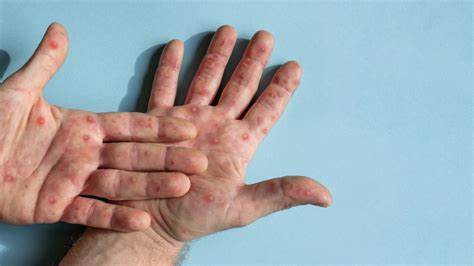Concerns about mpox were addressed by WHO Regional Director for Europe Hans Kluge on August 20, who emphasized that the virus’s propagation is easier to control than that of COVID-19. Kluge emphasized that the steps taken to combat mpox are well-recognized and feasible, underscoring the significance of international collaboration in combating the illness.
Monkeypox, sometimes called mpox, is a viral infection that results in pus-filled blisters and flu-like symptoms. Although usually moderate, in certain instances it can be severe or even fatal. Because the clade 1b variety may be easier to spread through close contact, its recent development has raised concerns around the world. This variety was recently confirmed in Sweden and has been connected to a new outbreak in Africa.
Kluge pointed out that Europe has a chance to increase its attention to the mpox strain known as clade 2, which is less serious but nonetheless dangerous to human health. Aiming to increase surveillance and public health guidance, he pointed out that about 100 new cases of clade 2 are reported in Europe every month. The epidemic is considered a “international concern” by the WHO because of the large number of cases—more than 17,000 in Europe.
Direct contact with an infected person or animal can result in the transmission of mpox, a zoonotic illness linked to the smallpox virus. It can enter the body through mucous membranes, the respiratory system, or breaks in the skin. The disease has gained particular attention in African nations due to significant outbreaks produced by the novel clade 1b strain. Cases have increased dramatically in the Democratic Republic of the Congo, and new infections have also been reported in Burundi, Kenya, Rwanda, Uganda, and other African countries.
Approximately 100 cases have been documented in Burundi, with children under the age of five accounting for a sizable number of cases. In the Taveta subcounty, Kenya has declared an outbreak; new cases have also been recorded from Rwanda and Uganda. Beyond Africa, the virus has spread; cases connected to recent travel to afflicted areas have been confirmed in Sweden and Pakistan. Additionally, a new case has been reported from the Philippines, which is the first since December of last year.
Each strain of mpox has different symptoms. Serious symptoms caused by Clade 1 usually include high fever, intense headaches, myalgia, and large lesions on the skin that may leave scars. Clade 2 on the other hand typically causes lesser symptoms.
In order to contain the mpox outbreak and stop it from spreading further, public health initiatives must be implemented quickly and on a global scale. International health cooperation and readiness will be put to the test in large part by how the world responds to this crisis.
SOURCE :
THE ECONOMIC TIMES








